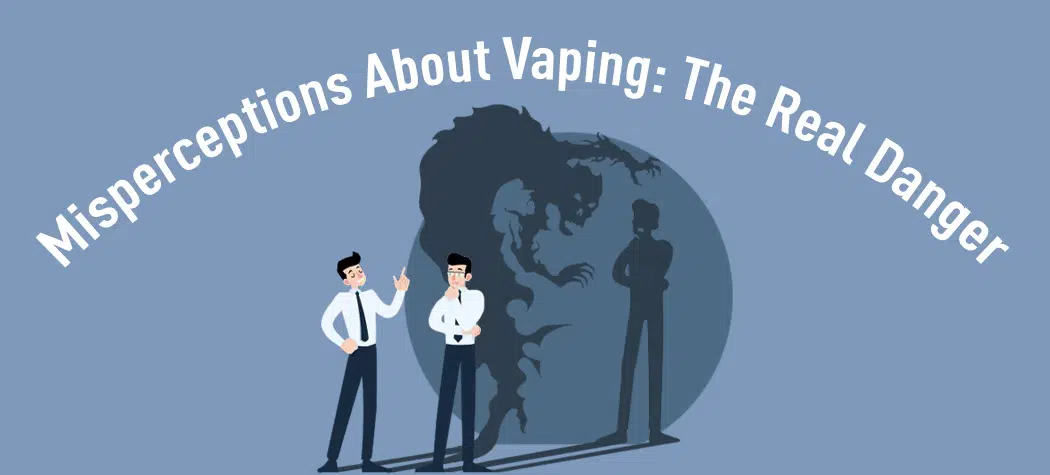Industry Research, Health Studies
Vaping Misinformation Is The Real Danger
Misperceptions about e-cig products sold in every UK vape shop are discouraging people who smoke from switching, according to a leading University of Oxford academic.
Misinformation about cigarettes products sold in every UK vape shop are discouraging people who smoke from switching, according to a leading University of Oxford academic. Jamie Hartmann-Boyce reckons false stories spread about UK vape juice and electronic cigarettes are “dangerous” because they keep people smoking.
Every month, newspapers carry stories that spread fear about vaping. Just last week, there have been negative stories mentioning a so-called gateway effect from vaping to smoking, “popcorn lung”, and EVALI (e-cigarette use-associated lung injury) despite all of these having been rebuffed by experts multiple times.
For example, Dr Hartmann-Boyce said: “We now know that Evali is not caused by regulated, commercial nicotine e-cigarettes. Rather, the condition has been linked to products sold as THC-containing e-liquids. Because THC (the active ingredient in cannabis) is expensive, some sellers were cutting their products with vitamin E acetate to make the e-liquid look like it contained more THC than it did. Although vitamin E acetate is an ingredient in some foods and skincare products, it’s harmful when inhaled.”
Yet this still doesn’t stop some activists feeding press releases to the media claiming that budget and premium vape liquids damage the lungs when it isn’t true.
“Despite statements from Public Health England and the US Centers for Disease Control and Prevention which state that e-cigarettes have the potential to benefit smokers who switch to vaping, concerns about the dangers of e-cigarettes, in part because of Evali, are still discouraging people who smoke from switching,” continues Dr Hartmann-Boyce.
Considering facts and evidence is Jamie Hartmann-Boyce’s area of expertise as she leads the Evidence-Based Healthcare doctorate programme within the Centre for Evidence-Based Medicine.
The academic points out that misinformation shockingly contributes to a third of the British public mistakenly believing that products found in UK vape shops are “as harmful as cigarettes, if not more harmful”.
Most people in the United States still think that EVALI was caused by vaping even though we now know the truth.
“In studies testing e-cigarettes as a way to quit smoking, there was no evidence that people using e-cigarettes were more likely to experience serious health issues. Also, e-cigarettes are thought to pose fewer risks to bystanders – while secondhand smoke from cigarettes kills around 1.2 million people a year.”
Of late, many negative stories have focussed on nicotine rather than the toxic products produced from tobacco cigarettes, making it easier for them to attack nicotine-containing UK vape liquid.
“There are concerns about the effect of nicotine on adolescent brain development. Although, as a recent paper pointed out, studies showing that nicotine causes changes in the brain have only been conducted on animals. The authors argue it is still unclear whether the same effect will be seen in humans.”
Dr Hartmann-Boyce argues that the way people communicate about the risks of vaping needs to improve because the real people at risk are those currently smoking – and they are the ones who will benefit from switching to e-cigs. These people, she says, “have a right to be receiving accurate, evidence-based information, too.
